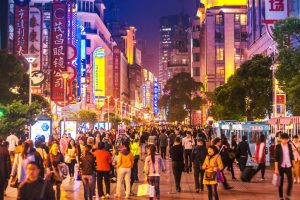 Taking a look at their distribution system, Neiman Marcus observed areas of development that it could improve on. The retailer implemented a new cross-channel merchandising system, which costs Neiman Marcus up to $35 million during its fiscal first quarter. According to a new article, the investment resulted in overall losses due to inventory issues and order fulfillment.
Taking a look at their distribution system, Neiman Marcus observed areas of development that it could improve on. The retailer implemented a new cross-channel merchandising system, which costs Neiman Marcus up to $35 million during its fiscal first quarter. According to a new article, the investment resulted in overall losses due to inventory issues and order fulfillment.
Internet Retailer reported how their retailers has had first fiscal quarter losses for 2017 due to facing distribution problems. Neiman Marcus stated, “These issues primarily related to the processing of inventory receipts at our distribution centers, the transfers of inventories to our stores and the presentation of inventories on our websites. These issues prevented us from fulfilling certain customer demand in both our stores and websites that we estimate resulted in approximately $30 to $35 million of unrealized revenue.”
Since this fiscal quarter occurs during the holiday season, Neiman Marcus’ challenges have impacted sales revenue online. Neiman Marcus reported online sales accounted for 29.2% of overall sales in the first quarter, which ended October 29th, at $315.1 million. This figure is down from $315.7 million from the previous year. In a filing with the U.S. Securities and Exchange Commission, Neiman Marcus revealed problems that related to the implementation of NMG One, its new cross-channel merchandising and distribution system. It resulted in a negative impact on online and offline sales. More specific numbers mentioned in the report were Neiman Marcus’ earnings, which included:
- A year-over-year total comparable sales decline of 8.0%, compared to a 5.6% decline last year.
- Net revenue of $1.079 billion, down 7.4% from $1.165 billion.
- A net loss of $23.5 million, compared to a net loss of $10.5 million.
Companies like Amazon not only have sophisticated distribution systems, but also have coupled it with Same-Day Delivery to literally meet online shoppers right where they are. Amazon has engaged same-day delivery into its’ supply chain, even offering it free in 27 major US markets. Amazon Prime is in San Francisco, Los Angeles, Dallas, Boston, Orlando, Chicago, Raleigh, New York, Atlanta, Tampa, and more. Optimal distribution system inefficiencies has been the key foundation for Amazon, yet the company is still only an e-retailer providing same-day delivery. Retailers like Neiman Marcus can partner with a Chicago Courier like 1-800 Courier and fulfill online orders directly from their stores.
Same-day delivery is revolutionizing the way we ship to the end customer. Nordstrom’s,Best Buy, PetSmart, Toys-R-Us, and others have all implemented some level of same-day delivery, using their store locations as close proximity warehousing, using them to carry inventory. Macy’s is fulfilling online orders with same-day delivery in cities like San Francisco, Los Angeles, Seattle, Houston, Chicago, New Jersey, Washington DC, and more. With over 880 store locations, the department store leader has shifted with e-commerce trends and distribution centers have the added supply chain to deliver items to customer’s front door. Neiman Marcus can use Nationwide Courier to develop a same-day logistics solution to create the omnichannels to help strengthen its’ distribution system.
Reference: 12.15.16, www.internetretailer, Matt Lindern, Distribution problems cost Neiman Marcus during its first quarter

